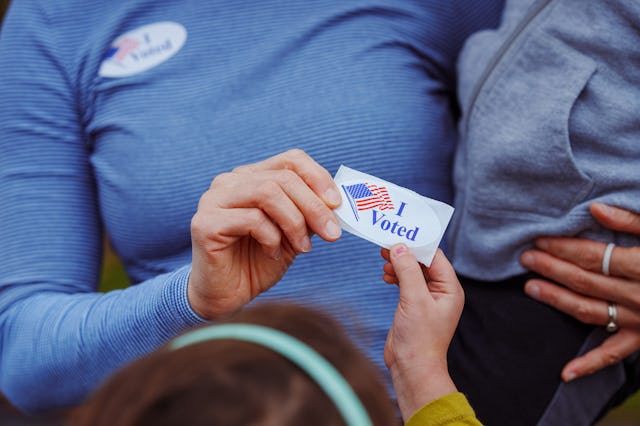The SAVE Act Threatens To Disenfranchise Millions Of Voters, Especially Married Women
Non-citizens are already prohibited from voting and overwhelmingly don’t; this bill would make it harder for many eligible voters to register.

Do you know where your birth certificate is? Does the name on your birth certificate match your current legal name or did you change it when you got married? Do you have a passport or $165 to get one? These may all be questions you’ll have to ask yourself if a current bill becomes a law.
The Safeguard American Voter Eligibility or SAVE Act was introduced in January by Representative Chip Roy (R, TX) as an amendment to the 1993 National Voter Registration Act. Its stated goal is to ensure that non-citizens are not able to register to vote or vote in federal elections by requiring proof of citizenship for voter registration and registration updates. This is already the law of the land. But on April 8, SAVE passed the House 220 to 208, with four Democrats joining Republicans. Voter rights advocates warn passage into law could disenfranchise millions of eligible voters and that married women who changed their names would be disproportionately affected.
“Despite the ridiculous attacks and purposeful misinformation spread about the bill, I am pleased to see that the House of Representatives once again passed the SAVE Act on a bipartisan basis to ensure only U.S. citizens vote in federal elections,” Roy said in a statement, continuing, “In order to preserve this republic, we must uphold what it means to be able to vote in a U.S. election. I am grateful that my colleagues answered the call and passed the SAVE Act, as this serves as a critical first step to ensure that we maintain election integrity throughout our country.”
But despite the categorization of “ridiculous attacks,” the language of the bill does raise concerns about registration access. A standard-issue government ID alone — including a driver’s license, tribal, or military ID — would not meet the criteria to register under the SAVE Act. The ID must include one’s place of birth. While something like a driver’s license could be supplemented with other documents, such as a birth certificate, this poses a challenge for those whose legal name does not match the name they were given at birth, including an estimated 80% of women who take their husband’s name upon marriage. The SAVE Act does not include a marriage license or change of name certificate as valid back-up documents to support a government issued ID.
While a Passport would serve as proof of citizenship, only nearly half of Americans actually have one according to the Center For American Progress, based on data from the State Department. This number varies considerably by state, from just under 80% of New Jerseyans to just over 20% of West Virginians.
Additional accessibility issues raised by the bill include the fact that registration must be done in person, undermining online or mail-in voter registration efforts. This also makes it difficult for rural voters who may live far from such sites, as well as eligible voters with disabilities or without cars. Moreover, gaining access to this documentation may prove challenging for people who do not already have it in their possession (e.g. college students living out of state, or people who have moved out of the state where they were born).
Voting by non-citizens, while a substantial talking point amid contentious elections, is already a crime. Even registering to vote as a non-citizen — including green card holders and legal residents — is punishable by up to five years in prison, and may trigger deportation.
Indeed, voter registration and voting by non-residents is exceedingly rare. According to reporting by NPR, examination into the issue by non-profit and state agencies found such aberrations numbered in the dozens out of millions or even tens of millions of voters. A 2024 audit in Georgia, for example, found 20 suspected noncitizens on the rolls out of more than 8 million or 0.00024% of registered voters in the state. Only nine had a history of voting.
With a Republican majority in the Senate and Donald Trump signaling his support via an Executive Order in March, there is a clear path for SAVE to become a law.